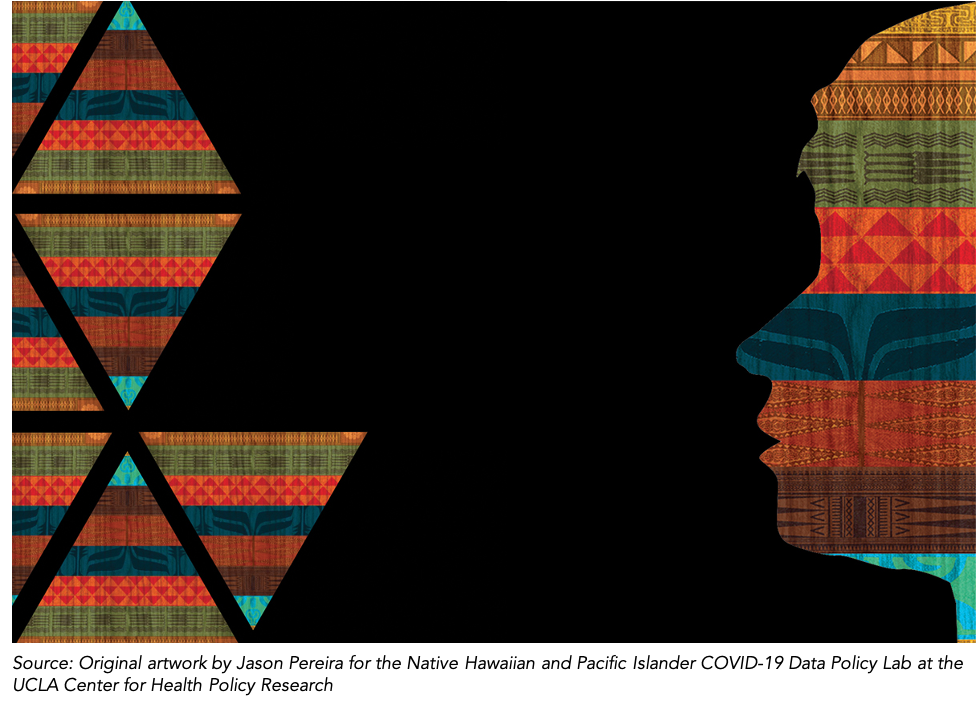News & Updates

Hawai‘i Data Collaborative at the 16th Hawai‘i Book & Music Festival
Nick Redding, Executive Director of the Hawai‘i Data Collaborative (HDC), was invited to join two panels at the 16th Annual Hawai‘i Book and Music Festival.
The first panel took place on October 5th, and included experts in healthcare, public health, and data to discuss Lessons for Future Pandemics. The second panel took place on October 28th, and included data experts to discuss Big Data Visualization.

New Platform Provides Much-Needed Data on COVID-19 Impacts Among Native Hawaiians and Pacific Islanders
Last month, the UCLA Center for Health Policy Research unveiled its Native Hawaiian and Pacific Islander COVID-19 Data Policy Lab and corresponding NHPI COVID-19 Data Policy Lab Dashboard in an effort to address the dearth of information regarding the disease’s impact on these groups. Why is the launch of the Lab significant for NHPI researchers, and what can decision- and policy makers learn from the data the Lab makes available? We explore a few answers…

How Good Data Can Advance Health Equity
Research has consistently found Native Hawaiians and Pacific Islanders (NHPI) are at increased risk of a range of preexisting and underlying health inequities, which in turn places members of these communities at increased risk of infection and severe illness from COVID-19. During the current pandemic, the disproportionality of the disease’s impact distills the health inequities borne by our state’s Pacific Islander community: currently, 30 percent of confirmed COVID-19 cases are among non-Native Hawaiian Pacific Islanders, although they constitute only 4 percent of Hawaii’s population. Recent media coverage suggests, despite recognizing Pacific Islanders’ heightened health risks for the disease, Hawaii state health officials were unprepared to adequately address the needs of this institutionally underserved community during the pandemic.
How can Hawaii better serve the health needs of Pacific Islander communities, particularly as the state wrestles with the impacts of COVID-19? Good data can certainly be part of the solution. What might “good data” mean, in this context?

The Hawaii Variable: A Data-Based Discussion About COVID-19 in Hawaii
On July 30, 2020, Honolulu Civil Beat hosted an online event bringing together panelists for a data-based discussion around COVID-19 in Hawaii. Topics included review of basic data and epidemiology terminology, different types of indicators that inform understanding of outcomes and what lies ahead, gaps in critical data to better inform our response to the pandemic, and answers to questions from the audience.
The Power and Potential of Disaggregated Data
One of the most relevant applications of data disaggregation in Hawaii is regarding race/ethnicity. Asians, Native Hawaiians, and Pacific Islanders are at times grouped together under the labels “Asian American and Pacific Islander (AAPI)” or “Asian and Pacific Islander (API).” These umbrella terms can be useful for analysis—for instance, when survey data doesn’t yield enough subgroup respondents to generate unique analytic categories. However, with the highest percentage of Asians in the country, as well as the largest Native Hawaiian/Pacific Islander population in the U.S., Hawaii is better positioned than many states to dig into possible disparities among AAPI subgroups.
